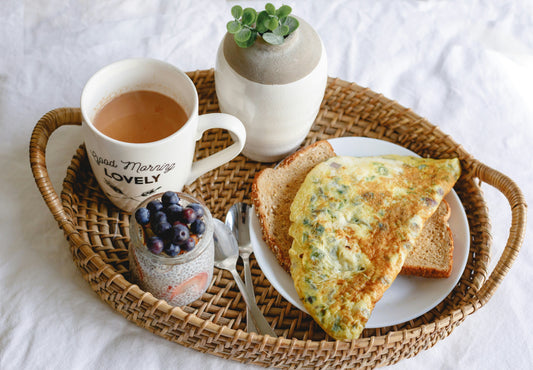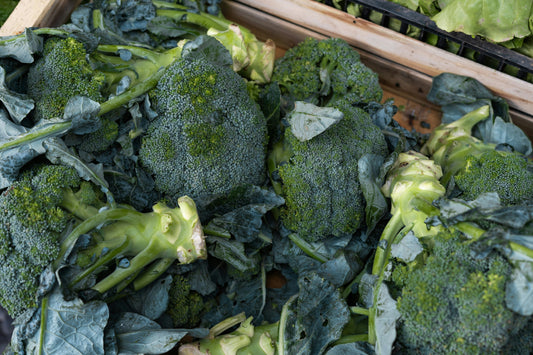I get asked lots and lots of questions from both the online community and clients, and often I get asked the same or similar questions each week. To help share the information that is most commonly sort after I will post two Q+A’s each week.
If you have questions that you would like answered simply email info@wellnessbyjessica.com, send me a Facebook message or leave a comment at the end of this Q+A.
Click here to read last weeks.
Rosacea
ROSACEA
Q: Are there specific foods you can recommend for rosacea-prone skin? – Alison J.
A: Rosacea is the reddening of the skin on the cheeks and around the nose. The skin will often form pimple-like bumps and the development of visible red veins is also common.
The redness is caused by increased blood flow to the skin on the face. There are a few things that you should do to minimise excess blood flow to the skin to prevent the condition from worsening.
Avoid:
- Spicy foods
- Overly hot food and drinks
- Excessive sunlight
- Hot baths, spas, and saunas
- Alcohol
- Harsh rubbing or scrubbing while washing the face
- Harsh exfoliants
Rosacea is usually triggered by excessive dilation of the blood vessels. There are two things which can trigger this excessive dilation; the first is inflammation. Inflammation happens when the immune system reacts to something that you have eaten or the skin has come in contact with. Inflammation increases the blood flow so that immune cells can reach the substance and destroy it, also causing redness and swelling.
There are common foods such as; sugar and gluten that cause inflammation in everybody, and then other foods that just cause inflammation in some people. For example; someone could be sensitive to dairy, chocolate and citrus fruit – causing a flare up of rosacea when these foods are consumed. Exclusion diets are often used to help find the food a person is sensitive to, it should only be carried out with the help of a nutrition professional to ensure it is done safely and effectively. In my experience the foods which can commonly trigger eczema, psoriasis, or rosacea are; dairy, gluten, eggs, onions, garlic, and nightshade vegetables.
Recent research has shown that Helicobacter pylori bacteria present in the stomach of some people can cause rosacea. This is because Helicobacter pylori bacteria produce a protein which triggers excessive dilation of the blood vessels. This bacteria can be present in the stomach for years without any symptoms, so many people have no idea that they are infected with it. Helicobacter pylori bacteria can be treated relatively quickly with antibiotics or with herbs and probiotics. Patients often notice an improvement in their skin soon after treatment for Helicobacter pylori bacteria overgrowth.
Anyone with rosacea should keep their diet free from inflammation causing foods (processed foods, sugar, gluten) and high in anti-inflammatory foods like oily fish, flax seeds, avocado, as well as fresh fruit and vegetables. It is also important to include good sources of vitamin C (berries, broccoli, citrus fruit, and goji berries) and zinc (beef, lamb, pumpkin seeds, spinach, and oysters) to help the skin’s own healing processes.
Be sure to avoid synthetic beauty products as these will make the condition worse. Look for low allergen organic products designed especially for sensitive skin. The Tailor Oil Cleanse, Moisturiser and Serum are great options for rosacea prone skin.
SHOULD I BE DRINKING A SPORTS DRINK?
Q: I compete in endurance sports events such as Iron Man and Coast to Coast, so I need some form of sports drink to keep me going especially since I find it hard to eat energy bars while I compete. Do I have to keep drinking the mainstream sports drinks or are there healthier alternatives? – Nikki S.
A: Due to clever marketing of the big name sports drinks too many people are drinking sodium, sugar and additive packed sports drinks unnecessarily. Unless you are doing intense exercise for more than 60 minutes it is very unlikely that you need a sports drink. A sports drink contains water, sugar, and electrolytes, all of which the body needs to replenish after about 60 minutes of hard exercise. If these substances are not replaced your performance will dramatically decrease. As an inductance athlete competing in events that can be anywhere from 4-8 hours then it is critical to have some form of sports drink available.
Traditional sports drinks are filled with additives, artificial colours and dyes and are typically lacking in nutrients, and if they contain vitamins and minerals these are usually synthesised versions rather than naturally occurring.
Electrolytes are positively charged ions which conduct electricity and maintain gradients in the body. Without them water would not be absorbed into the cells and the muscles and nerves would not function correctly. You will often see that sports drinks contain sodium and potassium, these are two important electrolytes that get used up during exercise or excreted through your sweat.
Do sports drinks contain too much sugar?
Sports drinks are very concentrated sources of sugar so that you can access large amounts of energy relatively easily. While you are exercising you don’t have the time or ability to eat a snack bar, piece of fruit or potato salad – so concentrated sugar in liquid for is the easiest option. The sugar in sports drinks is designed to be able to be quickly absorbed by the body, it contains simple carbohydrates rather than complex carbohydrates. A complex carbohydrate, for example, would be potato, pasta or bread, whereas fruit juice or table sugar is classed as a simple sugar or carbohydrate. Simple sugars are short chains of glucose or fructose, which are easily absorbed and contain no fibre to slow down the absorption rate.
What are the natural options?
There are plenty of recipes for homemade sports drinks, but designing a formula that suits you is actually very simple. You need to have a source of fluid, sugar and some sodium and potassium, the rest is down to taste and personal preference. By making your own from coconut water, fruit juices, and unrefined sweeteners you are able to include vitamins and minerals and avoid any nasty artificial substances.
Ingredient Options:
Coconut water – a natural source of sodium and potassium.
Honey or maple syrup – both of these are great sources of easily digestible sugars and contain naturally occurring vitamins and minerals.
Freshly squeezed fruit juices – orange, lemon, pear, apple, or pineapple juices are great ways to flavour sports drinks while adding valuable sugars and nutrients.
Salt – Mineral salt gives the much-needed sodium and other trace nutrients too.
Mineral Drops – most health food stores will stock a liquid trace mineral supplement. This is a liquid supplement containing electrolytes that can be added to your drink.
Here is a recipe I like to use:
HOMEMADE SPORTS DRINK
Ingredients
4 cups coconut water (you can use plain water but you won’t get the same amount of potassium)
¼ tsp of mineral salt
¼ cup of orange or pineapple juice
¼ cup warm water
3-4 tablespoons of honey or maple syrup
Method
1. Mix the honey or maple syrup and salt with the warm water until dissolved.
2. Add the rest of the ingredients and shake to mix.
3. Drink chilled
This drink will keep for 1-2 days in the fridge




